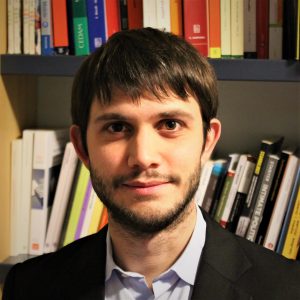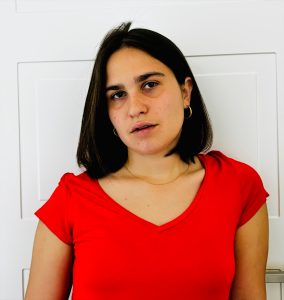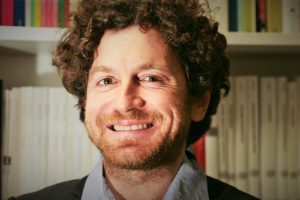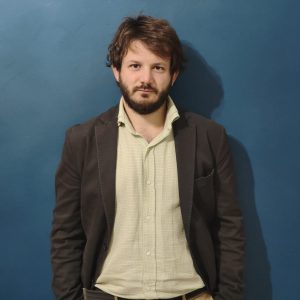SOMMOSSA team
TEAM UNIPG

Principal Investigator
marco.mazzoni@unipg.it
Marco Mazzoni is a Professor of Sociology of Communication at the Department of Political Science, University of Perugia. His primary research interests include Journalism, Political communication and Corruption.

Unipg team member
rita.marchetti@unipg.it
Rita Marchetti is Professor of Sociology of Communication at the University of Perugia. Her scientific interests include political communication, corruption and the relationship between religion and media, with particular reference to the digital sphere.

Marco Damiani is an Associate Professor of Political Sociology at the Department of Political Sciences of the University of Perugia. He teaches "Political Parties and Social Movements" in the Bachelor's degree program in Communication Sciences and "Governance and Public Policy Analysis" in the Master's degree program in Politics, Administration, and Territory. His main research interests include political parties, radical left parties in Europe, populism, political elites, local politics, and Network Analysis.
On these topics, he has published books and articles with national and international publishers and journals. Among his most recent monographs are: Sinistra senza classi (Mondadori, 2022), Populist Radical Left Parties in Western Europe (Routledge, 2020), and La sinistra radicale in Europa. Italia, Spagna, Francia, Germania (Donzelli, 2016).
Damiani is a member of the “3P’s International Network,” an international network coordinated by the Spanish unit of the Universidad Complutense de Madrid, dedicated to the comparative study (Europe-Latin America) of Populism, Polarization, and Post-truth.
From 2019 to 2022, he was a member of the “Proyectos de I+D de generación de conocimiento.” He participated in the project Populismo, preferencias politicas y representacion politica: cambios en los sistemas de partidos tras la gran recession with the leading institution being the Universidad de Salamanca. This project was funded by the Spanish government.
Damiani is part of the Perugia unit of the research project SOcial media and civic Mobilization as MOnitoring toolS in the SociAl construction of corruption (SOMMOSSA), funded by the PRIN PNRR. He is also a member of the Perugia unit of the research project Religion in Public: Forms and Dynamics of Religious Publicization in Italy (RE-PUBLIC), funded by the MUR-PRIN 2022.
He collaborates with and/or is a member of the editorial board of the following journals: Partecipazione e conflitto, Società mutamento e politica, Rivista di Politica, and Indiscipline. He was co-editor and is a member of the editorial board of the journal Sociologie. He is part of the “RILES” (Research on Social Bonds) research group and is a member of the editorial boards of two academic series (Democracy: theories and issues; Theory and Social and Political Research).
Damiani is a member of the Doctoral College in “Legality, Political Cultures, and Democracy” and co-founder and member of the Board of Directors and the Doctoral College of the postgraduate Level I Master’s program in “Expert in Design and Management of Participatory Policies and Processes.”

Unipg team member
roberto.mincigrucci@unipg.it
Roberto Mincigrucci is a research fellow at the Department of Political Science, University of Perugia. His primary research interests include Journalism, Political communication and mediated scandals.

Unipg team member
graziaenerina.pisano@dottorandi.unipg.it
Grazia Enerina Pisano is a PhD student in "Legality, Political Cultures and Democracy" at the Department of Political Science, University of Perugia. She studies the mafias - specifically the 'Ndrangheta - and their representations in the media.
TEAM UNIPI

Associated PI
alberto.vannucci@unipi.it
Alberto Vannucci is Professor of Political Science at the University of Pisa. He has been involved in studies and research on corruption for many years.

Unipi team member
mauro.syloslabini@unipi.it
Mauro Sylos Labini is a Professor of Economics at the University of Pisa. He previously held positions as an Assistant Professor the University of Alicante and IMT Lucca. His research spans labor economics, the economics of science and technological change, and political economics. His work has been published in leading journals, including Nature and the American Economic Review.

Unipi team member
Francesca Rispoli is a postdoctoral research fellow at the Department of Political Science, University of Pisa. Her main research interests include organized crime, corruption, active citizenship and social movements.

Unipi team member
marco.antonelli@sns.it
Marco Antonelli is a Postdoctoral Research Fellow at the Scuola Normale Superiore, Faculty of Political and Social Sciences. His research focuses on labor mobilizations, organized crime, and corruption, with particular attention to port workers and their role in contentious politics. His current project examines the mobilizations of port workers across the Euro-Mediterranean region, exploring the development of solidarity actions for peace and the resistance against arms trafficking through ports. By analyzing how dockers’ mobilizations are locally enacted and internationally connected, his work sheds light on the intersection of labor struggles and broader socio-political movements.
Antonelli holds a Ph.D. in Political Science from the University of Pisa and a Master’s in Analysis, Prevention, and Contrast of Organized Crime and Corruption. His doctoral research investigated mafia activities in port spaces, examining the dynamics between legal and illegal economies in logistics sectors, and in 2022 received the National Award “Amato Lamberti” for the best phd thesis on organized crime.
His previous research has explored workers’ mobilizations against labor exploitation, the infiltration of mafia activities in port spaces, and the interplay between socio-political dynamics and organized crime within logistics sectors. He has also examined the relationships between organized crime, corruption, illegal systems, and local governance, while emphasizing the critical role of civil society in addressing systemic corruption and fostering institutional accountability.





